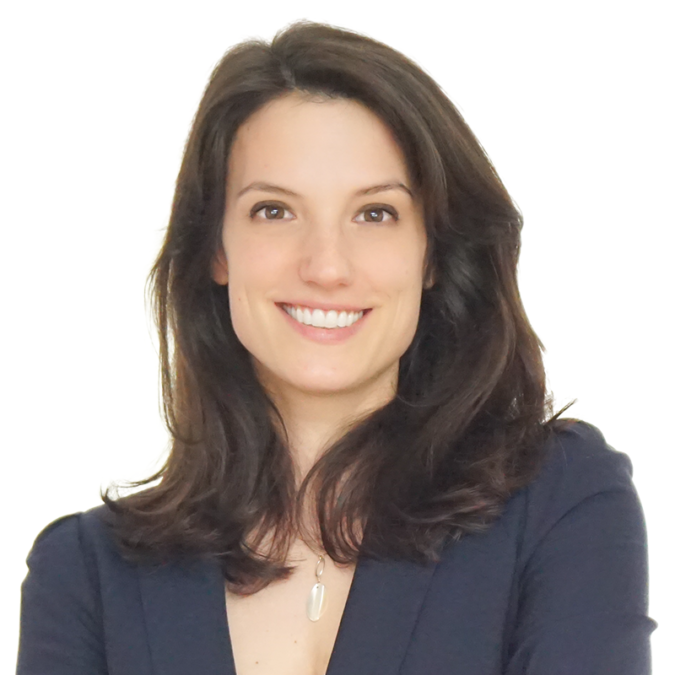Karen launched Oodi, a software-as-a-service provider that helps companies find, hire and manage digital marketing agencies in 2017. Oodi uses technology to simplify the often time-consuming process of hiring marketing services.
Prior to founding Oodi, Karen was Marketing Director of Thomson Reuters’ Tax and Accounting arm as well as Marketing Manager of Prospect Communications at iCIMS recruiting software. The knowledge she gained in these roles about how technology can improve business processes inspired her to start her own company.
>See also: Women in IT Awards USA Winner: Paula Hunter, NFC Forum
Can you provide leadership advice for those looking to advance their careers?
Don’t let your current skills stop you from taking on new roles and responsibilities. Many men and women that I’ve worked with and spoken to refused to go for promotions because they thought they lacked the skills to succeed.
They often didn’t realise that they had learned those skills in personal or school settings and could apply them to other roles. If they had just have gotten themselves in those roles, they would have learned along the way. For me, putting myself out there, getting over self-doubt and really trying, learning and growing has played a big role in my advancement.

Who have you looked to for inspiration, within the industry or more broadly?
There are a lot of men and women doing amazing things in the business world and in tech specifically that I like to follow. I try to see what the latest reports are, who’s on the Inc. lists or the Forbes lists, and I look at what those leaders are doing. I’m currently following Kathryn Minshew from The Muse, a recruiting technology company. She’s a young entrepreneur and tech leader and I like what she’s doing. It’s amazing to see the ups and downs she’s persevered through to get to where she is today.
>See also: Women in IT Awards USA winner: Annie Eaton, Futurus
I also look at the men and women I’ve worked with directly for inspiration and motivation. Seeing these leaders in action, seeing what they have done–and what they haven’t done–inspires me to strive for more. I always tell those who are looking for inspiration to look to their networks and talk to those leaders, understand their obstacles, how they overcame challenges and how they got to where they are today.
What was the best piece of advice given to you?
I’ve always asked myself, “What’s the worst that could happen?” even before I got into the business world. Asking myself this question has helped me keep decisions in perspective. A lot of the decisions that people make won’t destroy their careers. Those decisions may put them on different paths, but they won’t negatively impact them dramatically. It’s the decisions that we don’t make that will never jumpstart anything.
>See also: Women in IT Awards USA winner: Monica Jain, LogicHub
I’ve tried to live this advice in a lot of the career moves that I’ve made because complacency kills advancement. It’s easy to continue what you’re doing, especially if it pays the bills, but it won’t help you advance. The first time I heard “what’s the worst that could happen,” I was 21 and deciding whether to get a job in the US after college or move to Japan to teach English. I chose Japan. I had never been outside the US on my own before and I was thrown into an entirely new culture, new ways of doing business and of course a new language. Ever since that time, I’ve always asked myself, “what’s the worst that could happen?” and have pursued opportunities to get out of my comfort zone, strive for more and succeed.
What is the biggest challenge you face in your work?
The greatest challenge is making the time to incorporate education into my day-to- day. I wish there was one more hour each day when I could listen to the latest webinar. Ongoing education stimulates the discourse that drives innovation and overall wellbeing. Without ongoing education, making decisions that ultimately lead to improvement, innovation and success becomes impossible. I always try to do this, but wish I had more time.
>See also: Women in IT Awards USA Winner: Jennifer Kyriakakis, MATRIXX Software
Did you seek a career in technology or is it something that you came to indirectly?
I was a finance major and Japanese minor in college. After graduation, I taught in Japan and when I came back to the US in 2008, the finance job market was not good. I looked at my skills and what I had liked doing when I was in Japan.
One of the things I was responsible for was student enrolment and encouraging more people to sign up for classes. That got me thinking about marketing and led me to an internship that led to a full-time job. I worked my way up from there.
>See also: Women in IT Awards USA winner: Tracey Welson-Rossman, Techgirlz
Marketing, like many areas of business, is undergoing a digital transformation that has disrupted many traditional ways of doing things. How has this digital wave affected your career trajectory?
I would say I’ve been riding the digital wave. Ever since I was younger, I was always into tech, always into downloading the latest thing as long as it was free and trying and testing it out. My interest in technology impacted the way I approached marketing when I got there.
A lot of my success in those roles came because I sought technological solutions to questions of how to improve traditional marketing methods. I was able to automate processes and track results and did more in each new role.







